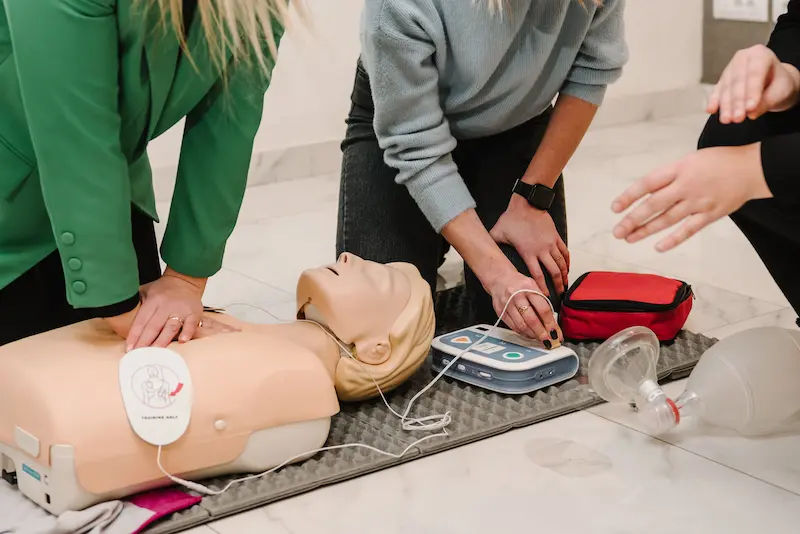- Male
- 27 Years
- 07/02/2025
I'm feeling really concerned about some symptoms I've been having lately. There's this persistent pain on the left side of my chest and in my left arm, and it's been going on for about four months now. I did a TMT test three months ago and it came back negative, but I'm still worried. I got my ECG and Echo done a few days ago and was told it's anxiety. Could you take a look at the results I've attached and let me know what you think?
Answered by 1 Apollo Doctors
"Based on your symptoms and previous tests, it seems like you may be experiencing musculoskeletal pain or nerve-related pain rather than a cardiac issue. You can try taking over-the-counter pain relievers like acetaminophen (Tylenol) for the chest and arm pain. Additionally, you can apply a topical pain relief cream like diclofenac gel to the affected areas. Make sure to follow the recommended dosage instructions on the packaging. If the pain persists, you should follow up with your doctor for further evaluation and management."
Dr. Dr Khaleel Suggests...
Consult a Cardiologist
Answered 04/07/2025
0
0

More Cardiology Health Queries
View allI've been getting chest pain and started to feel it in the center below my chest, like where the stomach is, even though I've done ECG more than 20 times and everything seemed normal. I just had a TMT on May 31st, 2022, and I'm wondering how long the reports from that are actually valid. My LDL and HDL levels are normal, but my triglycerides are quite higharound 400. Could this high level of triglycerides be causing a blockage? Is this something heart-related that I should be worried about?
Chest pain can have various causes, including heart-related issues. Since your TMT ECG and other tests have shown normal results, it is less likely to be related to your heart. However, it is essential to consider other factors such as gastrointestinal issues or musculoskeletal pain. It would be best to consult a doctor for a proper evaluation and diagnosis. TMT ECG reports are typically valid for a few months, but it is recommended to consult your healthcare provider for specific guidance. High triglyceride levels, especially above 400, can increase the risk of developing blockages in the arteries over time. It is crucial to manage your triglyceride levels through lifestyle changes and, if necessary, medications prescribed by a healthcare professional.
Answered by 1 Apollo Doctors
My dad just got a health check-up, and his TMT test came out positive. The doctor suggested we go for an angiogram, and I'm curious if we're on the right path here. Is there a possibility that the angiogram might show no blockages at all? Also, are there any risks we should be aware of when getting an angiogram?
Yes, you're on the right track. A positive TMT (Treadmill Test) suggests that there may be reduced blood flow to the heart, and an angiogram is a standard follow-up to check for any blockages. It is possible that an angiogram might show no significant blockages; sometimes TMT results are positive due to other factors. Angiograms are generally safe, but they do carry minimal risks, such as bleeding, infection, or, rarely, an allergic reaction to the dye used.
Answered by 1 Apollo Doctors
I've been wondering if there's any kind of link between asthma and an enlarged heart. See, I know asthma can make breathing really tough, so does that mean the heart has to work extra hard to get enough oxygen around the body? If that's the case, could it lead to the heart muscle getting bigger over time because of all the extra effort it has to put in compared to someone without asthma?
While there is no definitive evidence that directly links asthma to an enlarged heart, it is plausible to consider that the increased workload on the heart due to labored breathing in asthma patients could potentially lead to the heart muscle becoming enlarged over time. This condition is known as cardiomegaly. In such cases, it is important to manage asthma effectively to reduce the strain on the heart. Medications such as inhaled corticosteroids like Fluticasone (100-250 mcg twice daily) and bronchodilators like Albuterol (2 puffs every 4-6 hours as needed) can help control asthma symptoms and potentially reduce the risk of complications such as cardiomegaly. Regular monitoring by a healthcare provider is also recommended to assess heart health and adjust treatment as needed.
Answered by 1 Apollo Doctors
Disclaimer: Answers on Apollo 247 are not intended to replace your doctor advice. Always seek help of a professional doctor in case of an medical emergency or ailment.



.webp)

